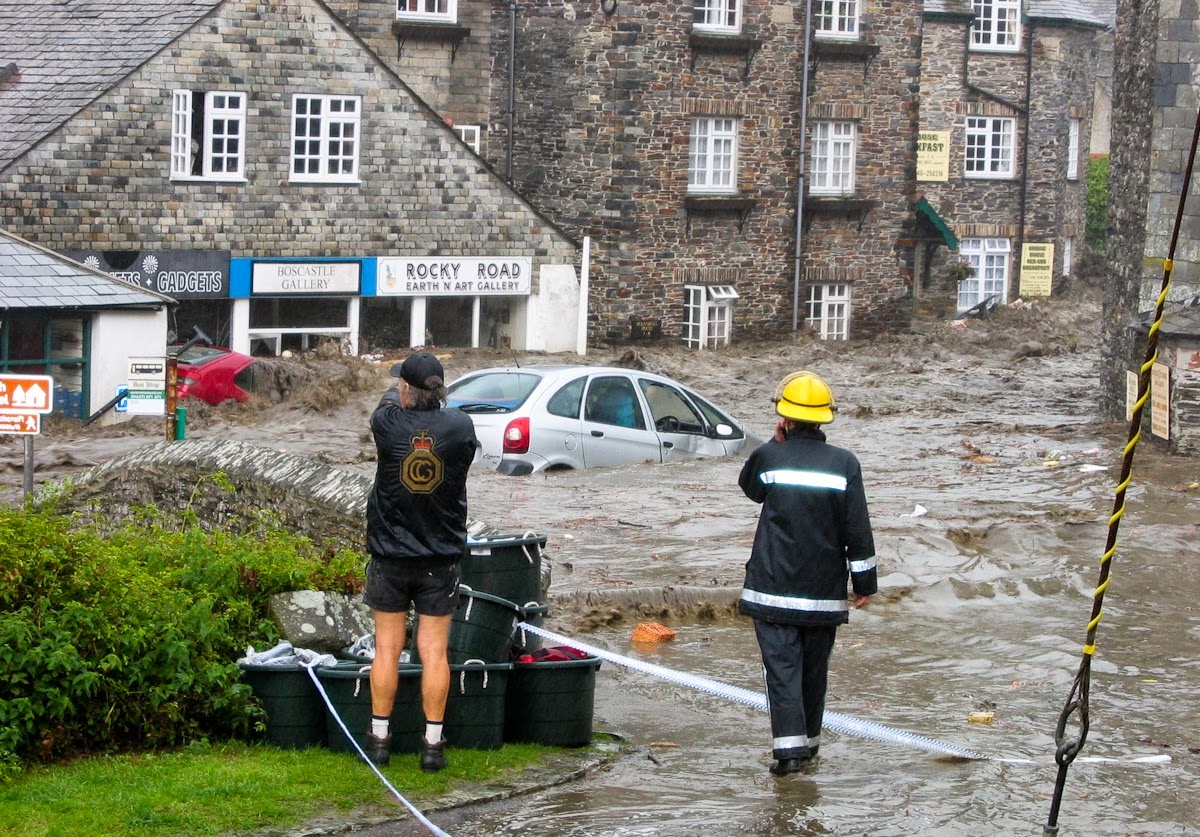Safety Spotlight - Sea Swimming and Cold Water Shock
Cold water swimming or finding yourself in cold water unexpectedly means things can quickly take a turn for the worse. It can happen to the most experienced of people and it’s almost always when you least expect it. Only this week, a swimmer was swept out to sea at the mouth of the River Irvine, while earlier in the week a group of people got into difficulty in the sea off Cornwall – more details below.
Since
the beginning of the year, we’ve responded to numerous calls for help around our
coasts and helping people in (and then out) of the water is in our safely
spotlight this week.
Above is a library image of our teams training in water rescue (taken pre-Covid)
Cold Water Shock
Cold
water shock can be life-threatening. If you enter the water when the
temperature is below 15°C, your body will instinctively want to protect itself.
This reaction can be very dangerous as cold water shock causes you to gasp for
air involuntarily. It’s frequently followed by hyperventilation – rapid
breathing that’s extremely hard to control. When this happens in the water, the
risk of gasping in water and drowning is very real.
Professor
Mike Tipton from the Extreme Environments Laboratory at the University of Portsmouth
discusses the effects of cold water immersion: https://vimeo.com/427683058
The Royal Life Saving Society also has some
useful information and facts about ‘cold water shock’. https://www.rlss.org.uk/cold-water-shock-the-facts
Swimming – planning for the unexpected
This
week (25 March), a 999 call to the Coastguard put swimming into the spotlight
when a swimmer found themselves in difficulties at the mouth of the river in
Irvine, Scotland. The swimmer was being swept out to sea by the current.
Coastguard Rescue Teams from Ayr and Ardrossan were sent as well as the search
and rescue helicopter from Prestwick and the RNLI lifeboats from Troon. The
Troon lifeboat reached the casualty and brought them back to shore where they
were checked over by the helicopter’s paramedic and then transferred into the
care of Scottish Ambulance for onward medical care.
Just a few days earlier and at the other end of the UK at Porth Chapel in Cornwall, a number of people found themselves in difficulty in the water. A 999 call was received by Falmouth Coastguard reporting a number of people in difficulty in the water at Porth Chapel in Cornwall. Coastguard Rescue Teams from Lands End and Penzance, two RNLI lifeboats from Sennen and the search and rescue helicopter from Newquay were sent to the incident.
The RNLI rescued three people from the
water and they were passed into the care of the South West Ambulance Service. A
fourth person had made their way to the shore and was airlifted to Treliske
Hospital.
Swimming safety precautions
For people planning a swim in the sea, it helps to be prepared and a number of simple precautions will help you to avoid getting into difficulties:
- Don't swim alone
- Check the weather forecast and tide times
- Ensure you have warm clothes for before and after your dip
- Wearing a wetsuit will help increase your buoyancy and reduce the chances of suffering cold water shock
- Be seen – wear a brightly coloured swim cap and consider using a tow float
- Acclimatise to the water temperature slowly – never jump straight in
- Stay in your depth and know your limits
- Take a mobile phone in a waterproof pouch so you can call for help if you need to
- If in doubt, stay out – there is always another day to go for a swim
Float to live
If you do find yourself in the water
unexpectedly, remember FLOAT to live: lean back in the water, extend your arms
and legs and resist the urge to thrash around. This will help you float until
assistance arrives.
Our Royal Life Saving Society and RNLI
colleagues also have some additional advice for open water swimming
https://rnli.org/safety/choose-your-activity/open-water-swimming
https://www.rlss.org.uk/open-water-swimming-safety-guide
If you see anyone in difficulty at the
sea or along the coast, please call 999 and ask for the Coastguard. We’re on
call 24/7 all year round.



